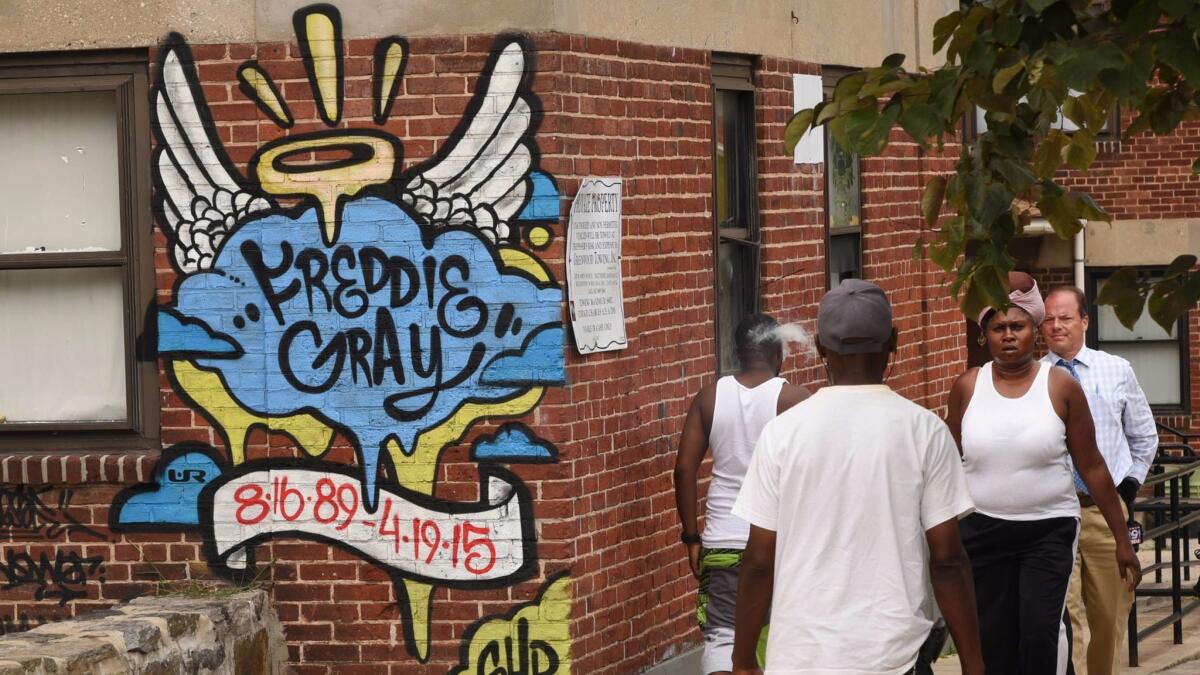A plan to reform Baltimore police goes forward despite Justice Department objections

- Share via
Reporting from BALTIMORE — A federal judge has approved a proposed consent decree between Baltimore and the U.S. Department of Justice, mandating sweeping police reforms at a time of intense violence and deep community distrust in the city police.
In issuing the order, U.S. District Judge James K. Bredar denied the Justice Department’s request that he not sign the agreement for at least 30 days so Trump administration officials could assess the deal — which was reached in the waning days of the Obama administration.
“The time for negotiating the agreement is over,” Bredar wrote. “The only question now is whether the Court needs more time to consider the proposed decree. It does not.” The order, issued Friday, took effect immediately.
Atty. Gen. Jeff Sessions said in a statement Friday that he supports reform but has “grave concerns that some provisions of this decree will reduce the lawful powers of the police department and result in a less safe city.”
The consent decree calls for significant new restrictions on officers, including limits on when and how they can engage individuals suspected of criminal activity. It orders more training for police on de-escalation tactics and interactions with youths, those with mental illness, and protesters, as well as more supervision for officers.
Sessions said the consent decree was “negotiated during a rushed process by the previous administration,” and at a time when Baltimore “is facing a violent crime crisis.” He cited statistics outlining a drop in arrests and a rise in homicides in the city.
“The mayor and police chief in Baltimore say they are committed to better policing and that there should be no delay to review this decree, but there are clear departures from many proven principles of good policing that we fear will result in more crime,” Sessions said. “The citizens of Baltimore deserve to see a real and lasting reduction in the fast-rising violent crime threatening their city.”
Mayor Catherine Pugh said she knows Sessions’ concerns about crime “are real” but believes the reforms required under the consent decree will make the city safer.
The consent decree was reached in January after a sweeping Justice Department investigation found widespread unconstitutional and discriminatory policing in the city — particularly in poor, predominantly black neighborhoods.
The city had invited the Justice Department to conduct the investigation in 2015 after rioting that followed the death of 25-year-old Freddie Gray from injuries suffered in police custody.
Rector writes for the Baltimore Sun.
ALSO
Police department in Portland, Ore., in disarray as scandals mount
Trump promised a border wall. Now these Texans worry the government will take their land
More to Read
Sign up for Essential California
The most important California stories and recommendations in your inbox every morning.
You may occasionally receive promotional content from the Los Angeles Times.













